According to Ms. Cao Xuan Thu Van, President of the Vietnam Cooperative Alliance, only sustainable cooperative development can help the agricultural sector escape from the fragmented, small-scale, and spontaneous state.
Green transition is inevitable
The country currently has nearly 30,000 cooperatives, of which agricultural cooperatives account for more than 60% with 3.5 million members, having a great impact on society. At the Forum "Developing cooperative economic models, promoting sustainable agricultural development" on November 24, Ms. Cao Xuan Thu Van emphasized: Developing agricultural cooperatives has an important position and role in developing agriculture, farmers, and rural areas. Only sustainable cooperative development can help the agricultural sector overcome the fragmented, small-scale, and spontaneous situation. At that time, farmers' income will increase thanks to the advantage of scale, collective buying, and collective selling.

Overview of the forum. Photo: Vu Quang
From a market perspective, cooperatives are forced to go green because green consumption has become a global trend. Ms. Le Viet Nga, Deputy Director of the Domestic Market Department, Ministry of Industry and Trade, said that in Vietnam's key export markets such as the US, Europe, China, Japan, Korea, etc., consumers are increasingly concerned about environmental protection in addition to product quality and price. In particular, the EU is shifting strongly to green and clean consumption, requiring compliance with requirements on animal and plant quarantine, rules on traceability, environmental protection standards, food hygiene and safety standards, and packaging and transportation processes.
With an export-oriented economy like Vietnam, the green transformation of cooperatives and enterprises is considered inevitable and vital, Ms. Nga emphasized. To take advantage of opportunities from free trade agreements to increase agricultural export turnover to markets, Vietnam cannot ignore solutions to promote sustainable agricultural development.
In addition, domestic consumers are increasingly placing importance on sustainability and environmental friendliness when shopping. According to a 2023 survey by NielsenIQ, 55% of respondents considered this factor very important and 37% considered it important. This trend also creates pressure, forcing agricultural cooperatives to go green.
Challenges from perception
In the new context, there are many factors that have a strong impact, creating opportunities but also posing many challenges for the development of agricultural cooperatives, especially sustainable development. Mr. Hoang Van Tham, Chairman of the Board of Directors, General Director of Chuc Son Clean Vegetable and Fruit Cooperative (Hanoi) said that when aiming for green production, the cooperative has difficulty in changing farmers' awareness. For farmers to access policies and change their awareness of green and clean production, it takes a process. The cooperative is cooperating with international organizations such as JICA to create an environment for processing industrial by-products as well as creating ecological technology models. Although many exchanges and training sessions have taken place, the effectiveness has not improved, Mr. Tham shared.
To export to demanding markets, businesses must develop clean raw material areas. Mr. Nguyen Khac Tien, Chairman of the Board of Directors of Ameii Vietnam Joint Stock Company, said that if businesses and cooperatives develop green but the surrounding areas do not convert, the products will be uneven, so the cooperation of local authorities is needed. "We hope to not only form a green cooperative, but also form a synchronous green production area," Mr. Tien said.
Green transformation in agriculture is an extremely difficult process, requiring perseverance and high political determination, Mr. Vu Manh Hung, Director of the Department of Agriculture and Rural Development, Central Economic Committee, also confirmed. To improve the effectiveness of the green transformation process of agricultural cooperatives, in addition to support policies, it is necessary to raise awareness of responsible production, that is, production according to sustainable standards or towards sustainability and not harming the environment. For example, limiting the use of fertilizers, pesticides, applying VietGAP, GlobalGAP...
To change the awareness of the cooperative sector on sustainable agricultural development and green growth, Mr. Hoang Van Tham, Chairman of the Board of Directors and General Director of Chuc Son Clean Vegetable and Fruit Cooperative, said that the State needs to have a real policy to support cooperatives. In addition, there needs to be a mechanism to develop human resources for cooperatives; if there is a lack of human resources, cooperatives will not be able to develop.
Vu Quang



![[Photo] General Secretary To Lam and National Assembly Chairman Tran Thanh Man attend the 80th Anniversary of the Traditional Day of the Vietnamese Inspection Sector](https://vphoto.vietnam.vn/thumb/1200x675/vietnam/resource/IMAGE/2025/11/17/1763356362984_a2-bnd-7940-3561-jpg.webp)













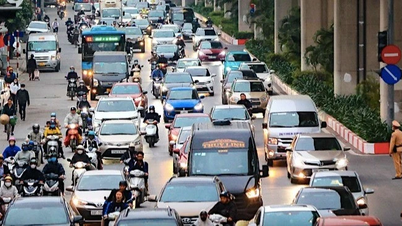

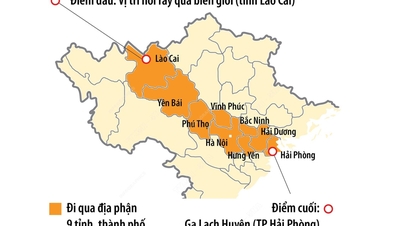

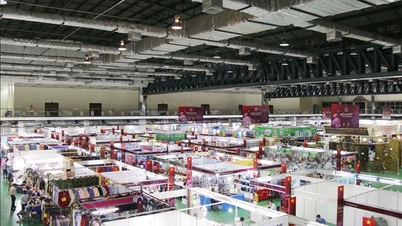
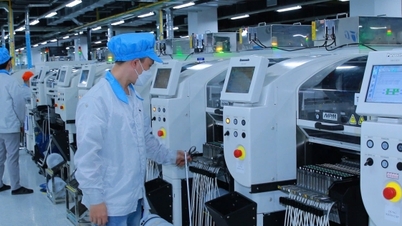










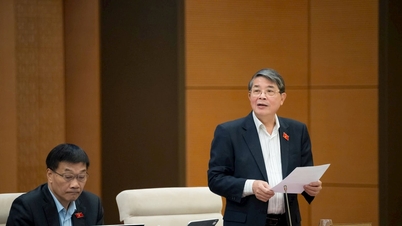

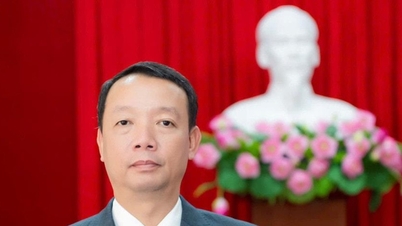

























































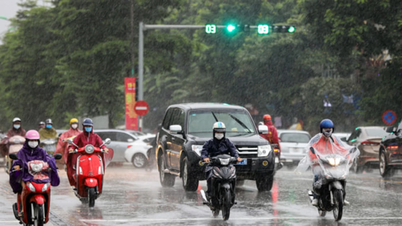

















Comment (0)